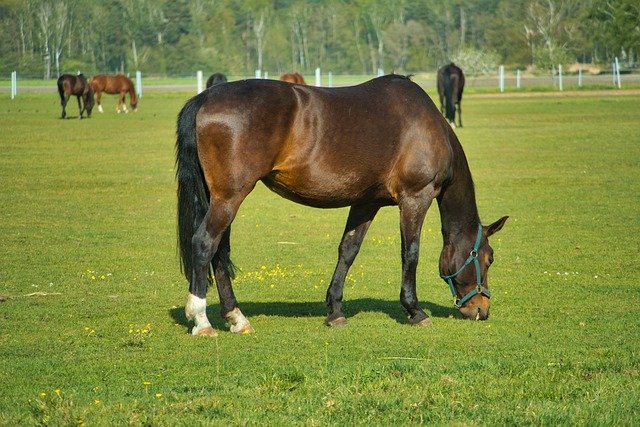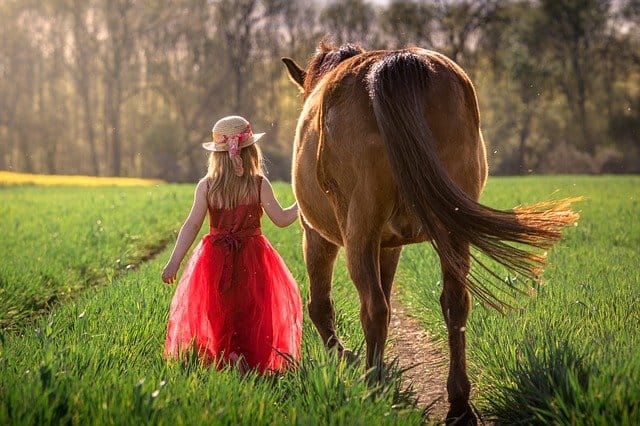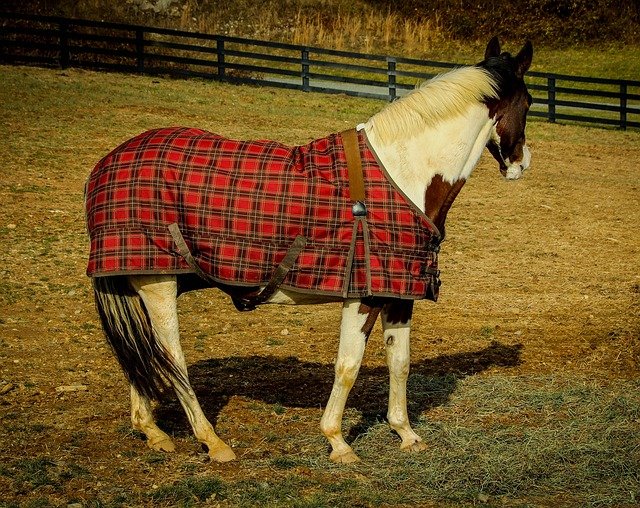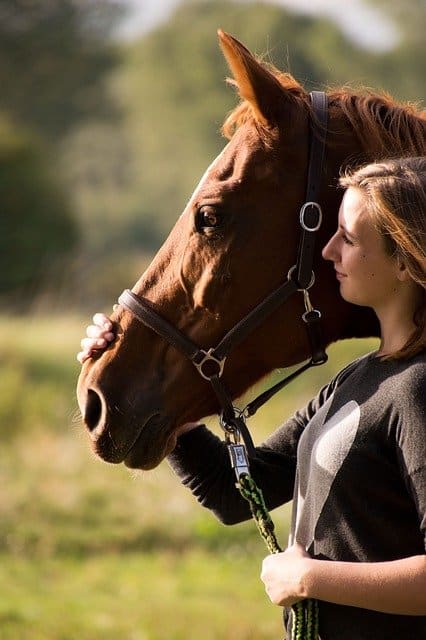When it comes to Vitamin D, I thought I was covered for sure. I take multi vitamins, along with a Vitamin D supplement, because let’s face it we don’t get a lot of sunshine here in Ireland. However, after a visit to my GP to discover the cause of my unexplained muscle and joint pain, a blood test revealed that I was not just deficient in Vitamin D, but majorly low! This got me thinking, if Vitamin D deficiency can cause such problems in humans what can it do to horses, especially those living in Ireland? With that question in mind let’s take a closer look at Vitamin D, what it is and how it functions.

Vitamin D
Vitamin D has come to be known as the Sunshine Vitamin, because the skin can synthesize this Vitamin in the presence of sunlight. There are 2 forms of Vitamin D, Vitamin D2 found in plants and Vitamin D3 found in animals. Both forms of Vitamin D are further converted in the body by the liver and kidneys into their usable state. Vitamin D acts like a hormone as it is transported via the Blood Plasma to the organs and cells of the body where it has a regulatory/physiological effect.
Vitamin D Functions
Vitamin D has many functions, but some of the main functions are as follows;
- Healthy Teeth & Bones – Vitamin D regulates Calcium levels and absorption in the body, and therefore is important for healthy teeth and bones.
- Promotes a healthy immune response to both viruses and bacteria
- Promotes healing – deficiency of Vitamin D can impact on the body’s ability to heal, as in a delayed healing response in wounds etc.
- Energy – reduced levels of Vitamin D can lead to fatigue and lethargy.
- Bone/Joint & Muscle Pain – Deficiency of Vitamin D has been shown to lead to pain in the bones, joints and muscles.
- Asthma – There has been a link to deficiency of Vitamin D and the incidence of Asthma in humans; while with horses it has been suggested that Vitamin D Deficiency may contribute to a condition known as IAD or Inflammatory Airway Disease in horses.
Symptoms of Vitamin D Deficiency in Horses
Some of the common symptoms of deficiency in horses are as follows;
- Poor Appetite
- Growth plate problems in young horses
- Rickets
- Stress Fractures
- Poor Muscle Contraction

Vitamin D & Your Horse
Much of what we know today with regard to Vitamin D is based on research that is centred on humans. The vast array of effects of a deficiency of this Vitamin indicates that further investigation is required with regard to Equines. In recent decades, the demands of Sport on our horses, warrants a study to determine the Effects of Vitamin D to the overall health and well being of the horse.
Research to date in this area is minor and it is clear that more work needs to be done. However, an interesting study carried out by Sara Azarpeykan, DVM, PGDip et al in New Zealand in 2015, on a group of adult horses, suggests that horses do not appear to synthesize Vitamin D3 through their skin. The study also found that good pasture and sun cured forage i.e. hay/haylage, appeared to provide enough Vitamin D2 to meet the horses requirements. The sample size was small, only 21 horses were included, so further research would be required to definitely state that horses do not synthesize Vitamin D through their skin. However, the fact remains that many of our modern horses spend a large amount of their lives inside and rugged up, all of which deprives them of natural access to the vitamin. Azarpeykan and her team recommended that supplementation of the Vitamin should be included in the animal’s diet in such cases.
Sources of Vitamin D for Horses
Sun Cured Forage such as Hay/Haylage is a source of Vitamin D2 for Horses, along with good grazing. However, the amount of sunlight seems to have a bearing on the levels of Vit D2 present in pasture and forage. ,
Many horse feeds are supplemented with Fortified Vitamin D plus there are supplements that will give a synthetic form of the Vitamin in an effort to keep your horse up to scratch.
While generally sun is crucial to Vitamin D synthesis in humans, with horses it would appear that this has a greater bearing on their grazing, as sunlight improves the available Vitamin D2 in grazing and forage. One can’t rule out synthesis through the animal’s skin and therefore horses should be allowed plenty of paddock time without being rugged, letting the horse be a horse.
Locations that are further North of the Equator, i.e. 51oN such as Canada, United Kingdom, Ireland, along with parts of Northern Europe, are among the locations that don’t get enough sunshine, particularly during the winter months. This fact along with the angle at which the sun’s rays hit the earth’s atmosphere can mean that there is very little useable sunlight to produce Vitamin D in winter grazing.

The Modern Horse’s Stable Management.
Nowadays the stable management of our horses means that they spend much of their lives indoors particularly during winter. Along with this many of our competition Horses have only limited time at grass even during summer, and when they do get out to graze they are usually rugged up, all of which can ultimately affect their levels of Vitamin D, causing a deficiency.

In Conclusion
There are certain parts of the world where our reduced amount of sunlight is more than likely having an adverse affect on the amount of Vitamin D available to our horses. Vitamin D has many vital functions in particular its function in relation to healthy bones and teeth and immunity, is of paramount importance to horses. No doubt that more research is required to document the benefits of Vitamin D to Equine Health. In the meantime supplementation of the horses diet particularly during winter months is recommended, this coupled with ample grazing during the summer months ( approximately 5- 8 hours per day), will enable our horses to get as much Vitamin D from a natural source as possible. It is important to remember to stay within the recommended guidelines if your horse requires supplementation. Available information suggests that 6.6IU of Vitamin D per Kilogram of Body Weight for an adult horse is the recommended dose. However, as over supplementation of a Vitamin is often as bad as deficiency, it is best to discuss any supplementation with your vet.
This article was originally published in the April 2021 Issue of Irish Sport Horse Magazine
